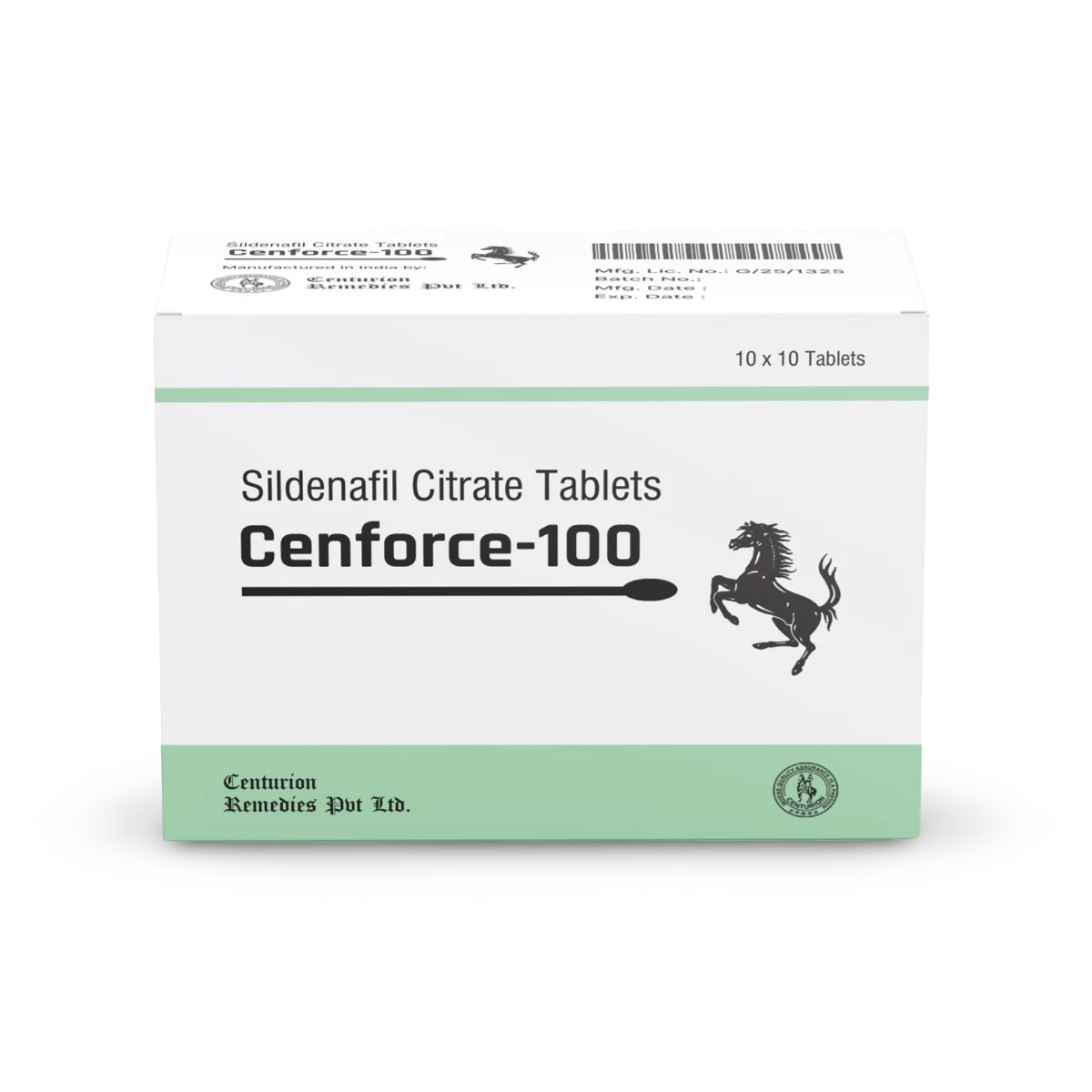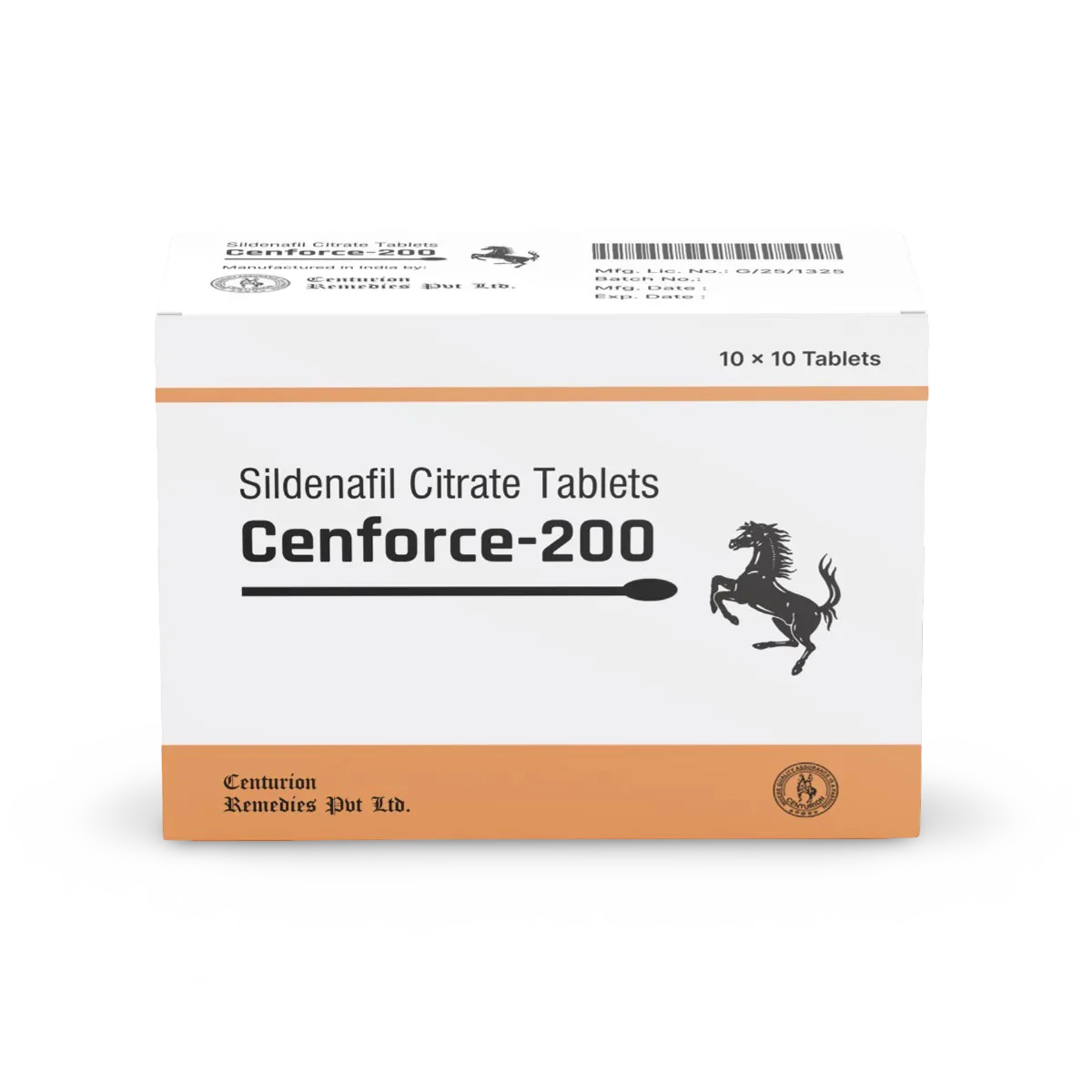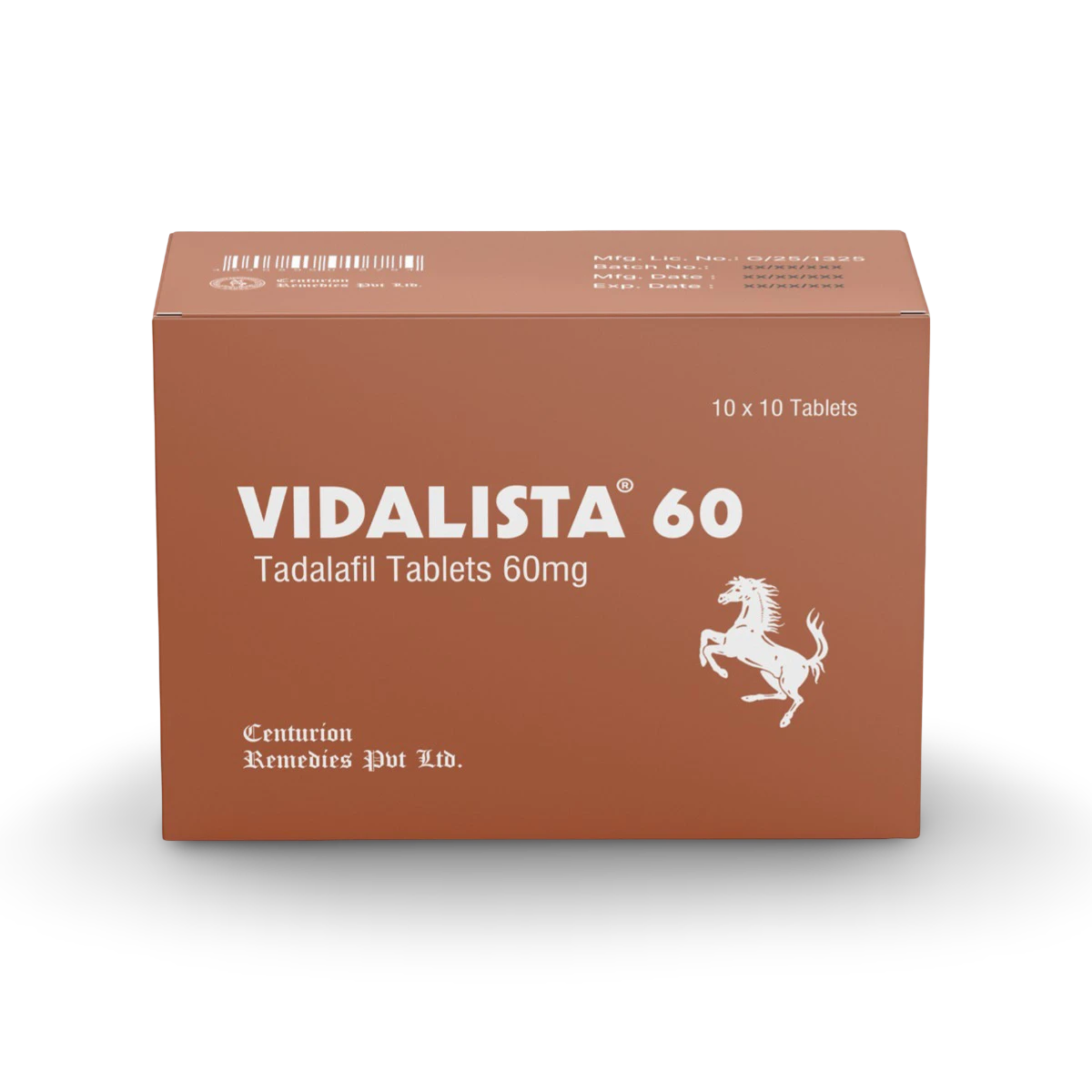When most people hear the word Sildenafil Citrate, they instantly think of Viagra, the little blue pill that revolutionized the treatment of Erectile Dysfunction (ED) in men or Assigned Males at Birth (AMABs). However, many people are unaware that Sildenafil is much more than a sexual performance enhancer.
Initially developed as a heart medicine, this powerful treatment has been shown to be useful in treating several blood flow and vascular health disorders, including Pulmonary Arterial Hypertension (PAH) and other lesser-known circulatory conditions.
Its unique ability to relax blood arteries has led to both the Food and Drug Administration (FDA)- approved medicines and an increasing number of off-label uses. Whether you’re wondering about its advantages outside of the bedroom or want to understand how it works, this article explores what is Sildenafil used for and why it’s become such an essential element of modern healthcare.
What is Sildenafil used for?
Sildenafil belongs to a family of medicines known as Phosphodiesterase Type 5 (PDE5) inhibitors. It is widely utilized to treat Erectile Dysfunction and Pulmonary Arterial Hypertension. Let’s examine how Sildenafil is used for these conditions.
Save up to 90% on your medicine bills

Cenforce 100 mg

Cenforce 200 mg

Kamagra Oral Jelly Rx 100 mg

Vidalista 60 mg
How are Sildenafil tablets used for ED?
Sildenafil, widely known as Viagra, is used to treat ED by boosting blood supply to the penis. When a man is sexually aroused, his body produces Nitric Oxide (NO), which causes an increase in cyclic Guanosine Monophosphate (cGMP).
The cGMP is a naturally occurring substance that dilates the penile smooth muscles, enabling blood to circulate and causing an erection. However, Phosphodiesterase Type 5 (PDE5) enzyme degrades cGMP, which can impair the capacity to maintain an erection. Sildenafil acts by blocking the PDE5 enzyme, preventing the breakdown of cGMP.
This action prolongs the effects of cGMP, improving the natural process of an erection by permitting continuous blood supply to the penis during sexual stimulation.
The standard beginning dose of Sildenafil for ED is 50 mg, although a doctor may change this based on individual response and tolerance, ranging from 25 mg to 100 mg. It’s essential to note that Sildenafil does not always result in an erection on its own; sexual stimulation is required for the medicine to perform properly.
Sildenafil is often given 30 minutes to an hour before sexual intercourse, with effects lasting up to 4 hours. Taking Sildenafil on an empty stomach may result in a speedier start of action, while a high-fat meal may slow its effects.
How Sildenafil Citrate is used for PAH?
Sildenafil Citrate, sold under the brand name Revatio, is also used to address symptoms of Pulmonary Arterial Hypertension (PAH) by blocking the same PDE5 enzyme it inhibits for ED, but in the context of the lungs’ blood vessels.
In PAH, the arteries that transport blood from the heart to the lungs constrict and stiffen, resulting in dangerously High Blood Pressure in the pulmonary circulation. Sildenafil inhibits PDE5, allowing cGMP to accumulate and expand these blood vessels.
This relaxation lowers the pressure in the pulmonary arteries, making it simpler for the heart to pump blood into the lungs, thereby increasing a patient’s exercise capacity and postponing disease development.
The Food and Drug Administration (FDA) permitted dose of Sildenafil for PAH is 20 mg, given three times daily. Doses for children might vary according to weight. Unlike ED, Sildenafil for PAH is given daily to keep blood vessels relaxed and treat the disease.
Can Sildenafil be used for anything else?
Yes. While Sildenafil has been approved for ED and PAH, its ability to increase vasodilation (blood vessel relaxation) has led to several off-label applications, including Raynaud’s Phenomenon, High-Altitude Pulmonary Edema, and Female Sexual Arousal Disorder.
Raynaud’s Phenomenon
An article documented in the Journal of Vascular Surgery in 2006 states that Sildenafil is an effective way to address severe instances of secondary Raynaud’s Phenomenon. Raynaud’s is a disorder in which blood vessels in the fingers and toes (and occasionally other extremities) constrict in reaction to cold or stress, causing them to become white, then blue, and finally red, typically accompanied by pain.
Sildenafil works by relaxing these constricted blood arteries, increasing blood flow, and decreasing the frequency and severity of attacks. It can also aid in the healing of digital ulcers, which are painful sores that appear on the fingers or toes due to severe Raynaud’s.
High-altitude Pulmonary Edema (HAPE)
In certain circumstances, Sildenafil has been used off-label to prevent or treat HAPE, a severe form of altitude sickness in which fluid accumulates in the lungs due to High Pulmonary Arterial pressure.
Sildenafil, by relaxing these arteries, can help lower blood pressure and increase oxygen delivery. However, it is not a main treatment, and its overall usefulness in avoiding HAPE is still being investigated.
Female Sexual Arousal Disorder (FSAD)
While Sildenafil is not officially licensed for female sexual dysfunction, some studies investigated its potential for treating certain aspects of the condition. The assumption is that it might enhance blood flow to the clitoris and surrounding tissues, similar to how it works in ED.
However, the evidence for its efficacy in women is unclear and additional study is needed, and it’s not widely prescribed for this purpose.
While these off-label applications appear promising, they are not FDA-approved, and a medical professional must weigh the possible benefits against potential risks for each individual. Patients should never attempt to take Sildenafil for off-label uses without consulting a doctor, as dose, possible interactions, and side effects might vary significantly.
Important considerations and warnings
The following are some important considerations and warnings one must keep in mind when using Sildenafil for safe and effective usage:
- Never use Sildenafil if you are currently taking Nitrates for chest discomfort or heart disease. This combination can cause a rapid and dangerous decline in blood pressure, causing dizziness, fainting, a heart attack, or stroke.
- Before using Sildenafil, consult your doctor if you have any pre-existing heart issues (for example, heart disease, irregular heartbeats, or a history of heart attack or stroke).
- Rare occurrences of sudden loss of vision in one or both eyes (Non-arteritic Anterior Ischemic Optic Neuropathy, or NAION) have been documented. If you experience sudden visual loss, discontinue Sildenafil and seek emergency medical attention.
- Before taking Sildenafil inform your healthcare provider if you have severe liver or kidney problems. Dosage modifications may be required since your body may eliminate the medicine more slowly..
- When using Sildenafil, avoid eating grapefruit or drinking grapefruit juice. Grapefruit can raise the level of Sildenafil in your blood, perhaps leading to further side effects.
- Sildenafil does not protect you from Sexually Transmitted Infections (STIs), including Human Immunodeficiency Virus (HIV). Always utilize safe sexual practices.
- Sildenafil may induce dizziness or visual problems. Be cautious when driving or using machinery until you understand how the medicine affects you.
- Do not use Sildenafil if you have ever had an allergic reaction to it or any of its ingredients.
- Avoid consuming excessive alcohol while taking Sildenafil, as it can increase the chances of encountering adverse effects, such as headache, dizziness, and Low Blood Pressure.
Conclusion
Understanding what is Sildenafil used for can help people make better decisions regarding their health and treatment. Sildenafil is mainly employed to treat Erectile Dysfunction by enhancing blood supply to the penis, resulting in a stronger and more persistent erection during sexual activity.
Under the brand name Revatio, Sildenafil is also marketed to treat Pulmonary Arterial Hypertension to lower blood pressure and improve physical capacity. Apart from these recognized applications, doctors may prescribe Sildenafil off-label for other circulatory or vascular problems. These often include Raynaud’s Phenomenon, High-Altitude Pulmonary Edema, and Female Sexual Arousal Disorder.
However, to avoid any potential side effects and medication interactions, this medicine must be used cautiously and under medical supervision.

Frequently Asked Questions
Does Sildenafil offer any benefits for diabetic complications?
Yes. Besides treating Diabetes induced Erectile Dysfunction, Sildenafil may enhance endothelial (blood vessel lining) function and blood flow, lowering the risk of complications. However, its potential significance in increasing insulin sensitivity and kidney protection is still being investigated.
Does Sildenafil help with Sleep Apnea?
No. Conversely, Sildenafil can worsen Obstructive Sleep Apnea (OSA) by relaxing the upper airway muscles. It is not suggested for those with this disease except under medical care, since it might worsen overnight, breathing problems.
Is Sildenafil used in newborns?
Yes, Sildenafil can be used to treat Persistent Pulmonary Hypertension in Newborns (PPHN). It relaxes pulmonary arteries and improves oxygenation in newborns with the condition, usually in a hospital environment with specialist care.
Can Sildenafil improve men’s fertility?
No. Although Sildenafil may improve sperm motility and erectile function in males suffering from Erectile Dysfunction-related infertility, it does not directly increase sperm count or quality. For infertility-related issues, always consult a specialist.
Is Sildenafil used in organ transplant patients?
Yes. In some cases, Sildenafil is used to manage Pulmonary Hypertension (High Blood Pressure inside the lungs) after an organ transplant, particularly in heart or lung patients. It enhances blood flow and lowers pulmonary vascular resistance. However, this should be done under strict medical supervision.
When referencing outside resources, GoodrxMedicine always provides full citations. To learn more about the measures we use to maintain the quality of our content, please review our Content Information Policy.











